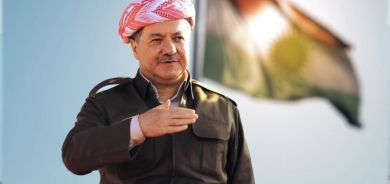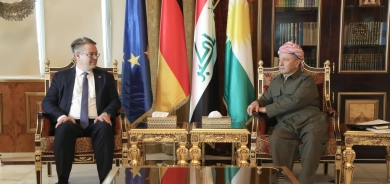Deciphering ISIS’s Power

There are, of course, a number of specific factors that also should be mentioned. Although it denies it, the earlier tacit support of Turkey, which allowed jihadists from all over the world to transit its territory and cross into Syria, has been well documented.Turkey’s motivation was to enable the Syrian opposition to defeat Assad and increasingly too the Syrian Kurds who had declared a thinly disguised PKK proto- state on the southern Turkish border. Chechnya, long since radicalized by Islamic ferment and struggle, has been one of many important contributors to this jihadist traffic.
These jihadists, who sought to recapture the lost glories of a resplendent Islam, were bolstered by others whose true motivations were more a sense of adventure and excitement all the way to the pathologically sick and criminal who reveled in approved thrill-killings, rape, and the chance for wealth. Drugs have even been used to convince converts to launch suicide attacks with the promise of immediate entrance into a paradise that would offer them 72 virgins.
The beheading and imprisonment of their enemies are ISIS’s most infamous actions. ISIS interprets some verses in the Quran (especially in Al-Anfal and Muhammad) to justify this deed. The Surah Muhammad, in section 4, states as follows: ‘So when you meet those who disbelieve [in battle], strike [their] necks until, when you have inflicted slaughter upon them, and then secure their bonds …’ (Surah Muhammad, 47:4. Source: http://quran.com/47). And another justification of beheading lies in the Surah Al-Anfal: ‘… those who disbelieve so strike [them] upon the necks and strike from them every fingertip’ (Al-Anfal, 8:12. Source: http://quran.com/8). The ISIS method of intimidation is also supported by section 60 in the Surah Al-Anfal: ‘And prepare against them whatever you are able of power and of steeds of war by which you may terrify the enemy of Allah and your enemy and others besides them whom you do not know [but] whom Allah knows. And whatever you spend in the cause of Allah will be fully repaid to you, and you will not be wronged’ (Al-Anfal, 8:60. Source: http://quran.com/8).
Paradoxically, even some Christians and Kurds have joined ISIS for either sheer adventure or ideological reasons dealing with anti-Americanism/Westernism or whatever perceived grievance they bore. However, the totals of these latter two groups are probably low and should not be over-emphasized. Still, that non-Muslims and non-Sunnis have been recruited warns against facile explanatory factors for the strength of ISIS. More relevant is the strict and uncompromising Wahabi Islamic doctrine prevalent in Saudi Arabia as well as finances from sympathizers in such states as Saudi Arabia, Qatar, and the United Arab Emirates, among others.
Even the United States has inadvertently helped what has now morphed into the Islamic State by lax policies that allowed many of its current leaders to escape from earlier U.S. detention centers in Iraq. The list includes the caliph himself Abu Bakr al-Baghdadi—who spent almost five years imprisoned at Camp Bucca in southern Iraq—as well as Abu Muslim al-Turkmani, Abu Louay, Abu Kassem, Abu Jurnas, Abu Shema, and Abu Suja, among others. In prison these extremists were held side-by-side with those less radical, allowing U.S. coalition prisons in Iraq to become recruitment centers and even training grounds for ISIS recruits.
Moderates who objected to being radicalized were harassed or worse through so-called Sharia courts that spread through the prisons. Limited resources to evaluate the prisoners effectively helped obscure what was occurring. Eventually, even prisoners with strong evidence against them were still released because of the weaknesses of the Iraqi court system and the refusal of the United States to share classified information. In addition, some of the most extreme radicals who had been sentenced to death were freed by successful ISIS attacks on what were now Iraqi prisons after the United States withdrew from Iraq at the end of 2011.
ISIS has clearly learned much about how to survive to fight successfully another day by its past travails. The organization is now burgeoning because of its perceived success, dynamism, and sense of destiny. The Mosul victory in June 2014 enforced these attributes by bringing vast amounts of captured finances and some of the latest U.S. military equipment into the organization’s grasp. Although ISIS now seemed to be the enemy of everybody and had become the specific target of a hastily constructed U.S. alliance, its opponents’ strength was much less than the sum of their parts due to their mutual hatreds and lack of unity. The United States, for example, forgot Churchill’s positive reference to the devil when Nazi Germany attacked the Soviet Union and its own wartime alliance with Stalin, and refused to admit Iran to its anti-ISIS coalition even though the Shia state was clearly one of the most effective potential opponents of ISIS. For the time being at least, ISIS could mobilize the maximum possibility of its strength, while its myriad opponents were divided and unable to strike back in unison.
Thus, when ISIS suddenly struck the Kurdistan Regional Government (KRG) on August 3, 2014, its vaunted military or peshmerga found themselves out-gunned due to inferior military equipment and initially without allies. Since the KRG was still not yet independent, American aid could only legally be given through Baghdad, which hesitated to give too much less the Kurds use it to become independent. Only after an emergency appeal from KRG president Massoud Barzani for immediate U.S. aid to stem the ISIS tide that had driven within a mere 20 miles of its capital Erbil with its 1.5 million inhabitants was ISIS brought to at least a temporary halt by U.S. air power. However, the present U.S. proclamation that it will not commit U.S. boots on the ground obviously encourages ISIS to believe that it can eventually triumph because of its enemies’ continuing weakness and disunity.
Michael M. Gunter is a professor of political science at Tennessee Tech. Most of this article is based on the Dr. Gunter’s findings during his visit to the Iraqi Kurdish region in late September 2014 and his earlier background research on the situation in Syria recently published as Michael M. Gunter, Out of Nowhere: The Kurds of Syria in Peace and War (London: Hurst Publishers Ltd., 2014).

 Michael Gunter
Michael Gunter











